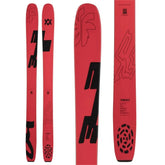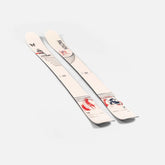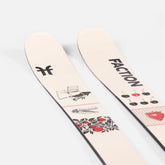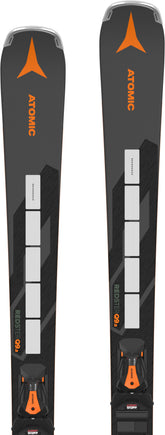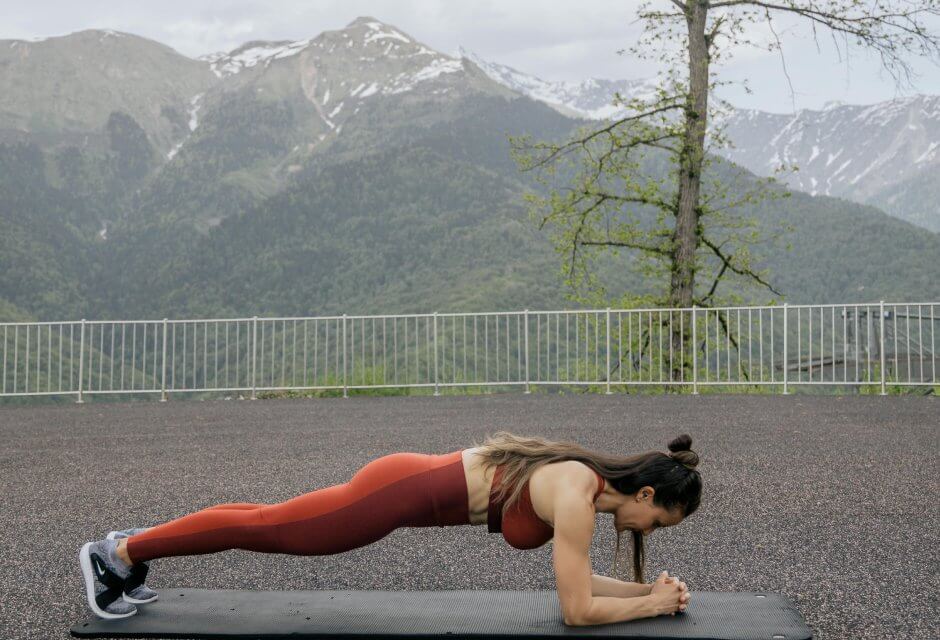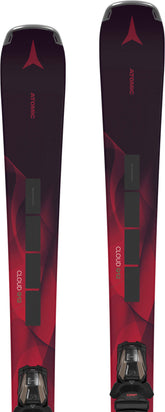Maintaining peak performance and staying injury-free starts in the offseason. It's the perfect time to relax and heal while laying a foundation of strength for the next season. By using the offseason intentionally, you will help yourself be ready to stay in the game the entire season.
Key Takeaways
- Offseason training is crucial for maintaining peak performance and preventing injuries.
- Focus on building strength, flexibility, and cardiovascular conditioning during the offseason.
- Mental preparation, including visualization and mindfulness, is essential for maintaining a competitive edge.
- Proper nutrition and hydration strategies support overall performance and recovery.
- Incorporating cross-training activities can enhance overall fitness and prevent burnout.
Building Strength with Offseason Ski Exercises
Off-season months are for building greater aerobic endurance, a stronger core, better form, and greater leg strength. The more aerobically conditioned you are throughout the entire body, the faster you will recover from intense workouts and race day efforts. This will allow you to work harder, more often, through the race season, which will lead to more gains in speed and overall endurance. To achieve this, your off-season needs to be filled with high-quality workouts.
Flexibility and Mobility Training
Enhancing mobility is key for athletes, distinct from passive flexibility. While some sports require extreme flexibility, most athletes benefit from improved mobility. Devoting time to comprehensive mobility routines, such as the MBSC Flow Warm-up by Mike Boyle, enhances performance and reduces injury risk.
Dynamic Stretching Techniques
Dynamic stretching is a game-changer. It involves moving parts of your body and gradually increasing reach, speed, or both. This type of stretching prepares your muscles for the activity ahead, improving performance and reducing the risk of injuries. Incorporate leg swings, arm circles, and torso twists into your routine.
Yoga for Skiers
Yoga isn't just for relaxation. It's a powerful tool for skiers to improve flexibility, balance, and strength. Poses like the Downward Dog, Warrior II, and Pigeon Pose target key muscle groups used in skiing. Consistency is crucial; make yoga a regular part of your offseason training.
Foam Rolling Benefits
Foam rolling is an effective way to release muscle tightness and improve blood flow. It helps in breaking down scar tissue and adhesions, which can form after intense workouts. Focus on rolling out your quads, hamstrings, and calves. This simple tool can make a big difference in your recovery and overall mobility.
Cardiovascular Conditioning for Skiers
High-Intensity Interval Training
High-Intensity Interval Training (HIIT) is a game-changer for skiers. It involves short bursts of intense exercise followed by rest or low-intensity periods. This method not only boosts your aerobic endurance but also enhances your ability to recover quickly between runs. Incorporate exercises like sprints, burpees, and jump squats into your routine. HIIT is especially beneficial for competitive skiing, where quick recovery and explosive power are crucial.
Endurance Running
Endurance running is a staple in any skier's off-season training. It builds the stamina needed for those long days on the slopes. Aim for a mix of long, steady runs and shorter, more intense sessions. This will help you maintain a strong cardiovascular base, essential for ski racing events. Remember, the more aerobically conditioned you are, the faster you'll recover from intense workouts and race day efforts.
Cycling Workouts
Cycling is an excellent low-impact exercise that complements your skiing training. It strengthens your legs and improves your cardiovascular fitness without putting too much strain on your joints. Whether you're hitting the trails or using a stationary bike, cycling can help you build the endurance needed for slalom skiing. Plus, it's a great way to mix up your routine and keep things interesting.
Off-season months are for building greater aerobic endurance, a stronger core, better form, and greater leg strength. The more aerobically conditioned you are throughout the entire body, the faster you will recover from intense workouts and race day efforts. This will allow you to work harder, more often, through the race season, which will lead to more gains in speed and overall endurance.
Key Points
- HIIT: Boosts aerobic endurance and quick recovery.
- Endurance Running: Builds stamina for long days on the slopes.
- Cycling: Strengthens legs and improves cardiovascular fitness.
Incorporate these workouts into your off-season training to stay in peak condition and be ready for the next ski season.
Mental Preparation and Focus
Visualization Techniques
Visualization is a powerful tool for skiers. Picture yourself nailing that perfect run. Imagine every turn, every jump, and every landing. This mental rehearsal can significantly improve your performance on the slopes. Spend a few minutes each day visualizing your goals and the steps needed to achieve them.
Mindfulness and Meditation
Staying present is crucial. Mindfulness and meditation can help you stay focused and calm, even in high-pressure situations. Practice deep breathing exercises and short meditation sessions to keep your mind sharp. This will help you maintain that psychological edge and keep negative emotions at bay.
Goal Setting Strategies
Setting clear, achievable goals is essential. Break down your long-term objectives into smaller, manageable tasks. This not only keeps you motivated but also helps you track your progress. Remember, the primary key during the off-season is keeping athletes mentally engaged and patient with the process.
Embrace the off-season: give your body and mind the time they need to recover and prepare for the next challenge.
Nutrition and Hydration Strategies
Balanced Diet Plans
Nutrition is a cornerstone of effective training, whether during the season or off-season. Your body’s performance is contingent on the quality of fuel it receives. Amidst the plethora of dietary advice, consulting a sports dietitian is advisable for tailored guidance. Eating a balanced diet with carbs, proteins, and fats is essential. Prioritize complex carbs (whole grains, vegetables) and lean proteins (chicken, fish) to optimize your nutrition.
Hydration Tips
Hydration is just as crucial as nutrition. Drinking water consistently throughout the day helps maintain peak performance. Aim for at least 3 liters of water daily, more if you're engaging in intense workouts. Electrolyte drinks can also be beneficial, especially after long training sessions. Remember, proper hydration aids in muscle recovery and overall health.
Supplements for Skiers
Supplements can fill in nutritional gaps. Common supplements for skiers include Vitamin D, Omega-3 fatty acids, and protein powders. However, it's best to get most of your nutrients from whole foods. Consult with a healthcare provider before starting any supplement regimen.
Maintain your health by ensuring your nutrition and hydration are in line with your fitness goals. This encompasses your whole-body health: physical, mental, and even emotional.
Recovery and Injury Prevention
Importance of Rest Days
Maintaining peak performance and staying injury-free starts in the offseason. Take time to relax and heal, while laying a foundation of strength for next season. Rest, including sleep and taking a break from intense activity, allows the body to heal, which may prevent minor injuries from becoming chronic. Athletes might fear taking time off will lead to a loss of any gains they made during the season. However, rest does not mean no activity necessarily.
Physical Therapy Exercises
Addressing past injuries is paramount during the offseason. Goals should encompass rehabilitation and preventative measures, potentially involving collaboration with a physical therapist. This focused practice can lead to significant improvements in their overall game performance when the season resumes.
Preventative Measures
Injury prevention is the foundation of maintaining peak health and performance. Any sports season, with intense practices and competition, can put strain on an athlete’s body and may put them at risk for injuries. The offseason is an important opportunity for athletes to heal from injuries and prevent them next season. Here are some ideas how to maximize the offseason to come back stronger and ready to achieve next season:
- Engage in mobility exercises and soft-tissue work.
- Incorporate regular strength training to maintain muscle mass and power output.
- Focus on dynamic stretching techniques to keep the body flexible and resilient.
By using the offseason intentionally, you will help yourself be ready to stay in the game the entire season.
Cross-Training Activities
Cross-training is a game-changer for skiers. It helps maintain peak performance and prevents burnout. Diversifying your workouts can also address past injuries and enhance overall fitness.
Swimming for Full-Body Fitness
Swimming is a low-impact, full-body workout. It builds endurance, strengthens muscles, and improves cardiovascular health. Plus, it's a great way to stay cool while working out.
Rock Climbing for Strength
Rock climbing is an excellent way to build upper body and core strength. It also improves balance and mental focus. The challenge of climbing can be a refreshing change from your usual routine.
Trail Running for Endurance
Trail running offers a dynamic workout that builds leg strength and cardiovascular endurance. The varied terrain helps improve agility and balance. It's a perfect way to enjoy the outdoors while staying fit.
Conclusion
Maintaining peak performance and staying injury-free starts in the offseason. This period is not just about taking a break but about laying a solid foundation of strength and resilience for the upcoming season. By using the offseason intentionally, athletes can ensure they are ready to stay in the game throughout the entire season. Remember, it's easier to maintain peak performance than to reclaim it. So, take the time to relax, heal, and train smartly. Your future self will thank you for the effort you put in now.
Frequently Asked Questions
Why is offseason training important for skiers?
Maintaining peak performance and staying injury-free starts in the offseason. By using this time intentionally, you lay a foundation of strength for the next season, ensuring you're ready to stay in the game throughout the entire season.
How can I maintain my fitness level during the offseason?
While your training load can and should decrease, slacking off shouldn't be on the menu. Focus on maintaining a healthy fitness level by incorporating strength training, flexibility exercises, and cardiovascular conditioning.
What are some effective core workouts for stability?
Effective core workouts for stability include planks, Russian twists, and leg raises. These exercises help build the core strength necessary for maintaining balance and stability on the slopes.
How does mental preparation impact skiing performance?
Maintaining confidence and a mental edge during the offseason is crucial. Techniques such as visualization, mindfulness, and goal setting can help keep you mentally prepared and focused for the upcoming season.
What role does nutrition play in offseason training?
A balanced diet and proper hydration are vital for maintaining peak performance. Consuming the right nutrients supports muscle recovery and overall health, while staying hydrated ensures optimal physical function.
Why is recovery important in the offseason?
Recovery is essential to prevent burnout and injuries. Taking rest days, incorporating physical therapy exercises, and following preventative measures help your body heal and prepare for the next season.


